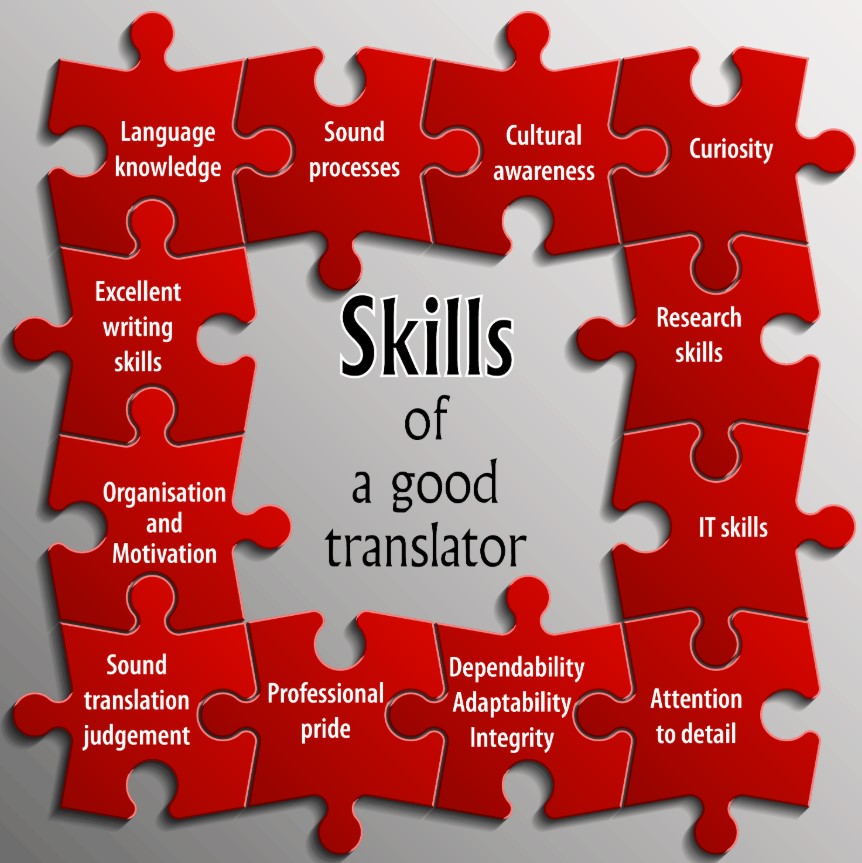
Becoming a successful international translator involves more than just knowing multiple languages. It requires a combination of language skills, industry knowledge, business acumen, and networking. Here’s a step-by-step guide to help you on your path:
1. Master the Languages
- Fluency in Source and Target Languages: You need to be fluent in at least two languages—your native language (target) and a foreign language (source). The more languages you know, the more opportunities you can pursue.
- Cultural Understanding: Translation is not just about language, it’s about culture too. Understanding cultural nuances and idiomatic expressions is crucial for accurate translations.
2. Specialize in a Niche
- Find Your Specialty: Successful translators often specialize in one or a few areas, such as legal, medical, technical, or literary translation. This allows you to become an expert in that field and command higher rates.
- Certification: Consider obtaining certifications in specialized fields, like legal or medical translation, as these can add credibility and increase your earning potential.
3. Develop Translation Skills Beyond Language
- Attention to Detail: Great translators are meticulous. You need to spot nuances, maintain consistency, and ensure accuracy.
- Research Skills: You’ll often come across terminology you’re not familiar with. Knowing how to research terms efficiently and use reliable resources is key.
- Writing Skills: Translators must be able to write clearly and concisely in their target language, as well as adjust the tone and style to suit the context.
- Software Proficiency: Learn how to use translation tools like CAT tools (Computer-Assisted Translation) such as SDL Trados, MemoQ, or Crowdin. These tools help manage translation projects, ensure consistency, and speed up workflows.
4. Build a Portfolio
- Showcase Your Work: Having a portfolio is essential to attract clients. You can start by offering pro-bono or discounted services to build your portfolio if you’re just starting out.
- Highlight Your Specialization: Make sure your portfolio showcases your expertise, whether it’s in business translation, tech, literature, etc.
- Get Testimonials: Ask previous clients for testimonials or recommendations. Word of mouth and positive reviews can help build trust with new clients.
5. Set Up a Strong Online Presence
- Create a Website or Blog: Showcase your services, portfolio, and expertise. A personal website can make you look more professional and provide a point of contact for potential clients.
- Social Media: Leverage platforms like LinkedIn and Twitter to connect with other professionals, share your work, and participate in conversations related to translation and linguistics.
- Freelance Platforms: Join platforms like ProZ.com, TranslatorsCafe, Upwork, or Fiverr to find clients. Being visible in these spaces increases your chances of getting hired.
6. Get Certified
- While certification is not strictly necessary for all types of translation, it can help you stand out. There are professional translation certifications such as:
- ATA Certification (American Translators Association)
- CIOL Certification (Chartered Institute of Linguists)
- ISO Certifications (for quality assurance)
7. Network and Build Relationships
- Join Professional Organizations: Being part of organizations like the ATA, FIT, or AIIC can help you connect with other translators and industry professionals.
- Collaborate: Work with other translators on large projects or with translation agencies. Networking with agencies is a good way to secure consistent work.
- Attend Conferences: Participating in translation or language-related conferences can help you build your network and learn about the latest tools, trends, and techniques.
8. Set Competitive Rates and Manage Finances
- Know Your Worth: Research what translators in your field charge, and set your rates accordingly. For specialized fields like legal or medical translation, rates can be significantly higher.
- Manage Your Business: As a freelancer, managing your business side is just as important as your translation work. This includes invoicing, taxes, and setting aside time for business development.
9. Quality Assurance
- Proofreading & Editing: Always proofread your translations before sending them to clients. If possible, have someone else review your work to catch errors you might miss.
- Use Translation Memory & Glossaries: These tools help you maintain consistency and efficiency, especially for large projects or when working on recurring clients.
10. Stay Updated & Improve
- Keep Learning: Language evolves, as do translation tools. Stay updated with the latest trends in technology and linguistic studies. Online courses, webinars, and workshops can help you sharpen your skills.
- Use Online Resources: Websites like ProZ.com, The Translation Zone, or Language Forums are great places to engage with the translation community and learn from others.
11. Focus on Client Relationships
- Clear Communication: Be responsive, professional, and clear about deadlines, costs, and expectations with clients.
- Customer Service: A happy client is a returning client. Offering excellent customer service, keeping communication lines open, and meeting deadlines will ensure long-term relationships.
12. Adapt to Global Trends
- Machine Translation (MT): While MT tools like Google Translate and DeepL are widely used, human translators still provide nuanced and culturally appropriate translations. Understand how to leverage MT in combination with your skills.
- Localization vs. Translation: As technology grows, translation is increasingly paired with localization, which refers to adapting content to specific cultural norms. Understanding localization trends and how they affect translation is vital.
Key Takeaways for Becoming a Successful International Translator:
- Invest in your skills: Always improve your language proficiency and specialize in a niche.
- Leverage technology: Master CAT tools and translation management systems.
- Build your network: Engage with other translators and industry professionals.
- Provide high-quality service: Consistently produce accurate, culturally relevant translations while offering great customer service.
Do you have a particular area of translation you’re interested in, or are you just exploring the profession?

